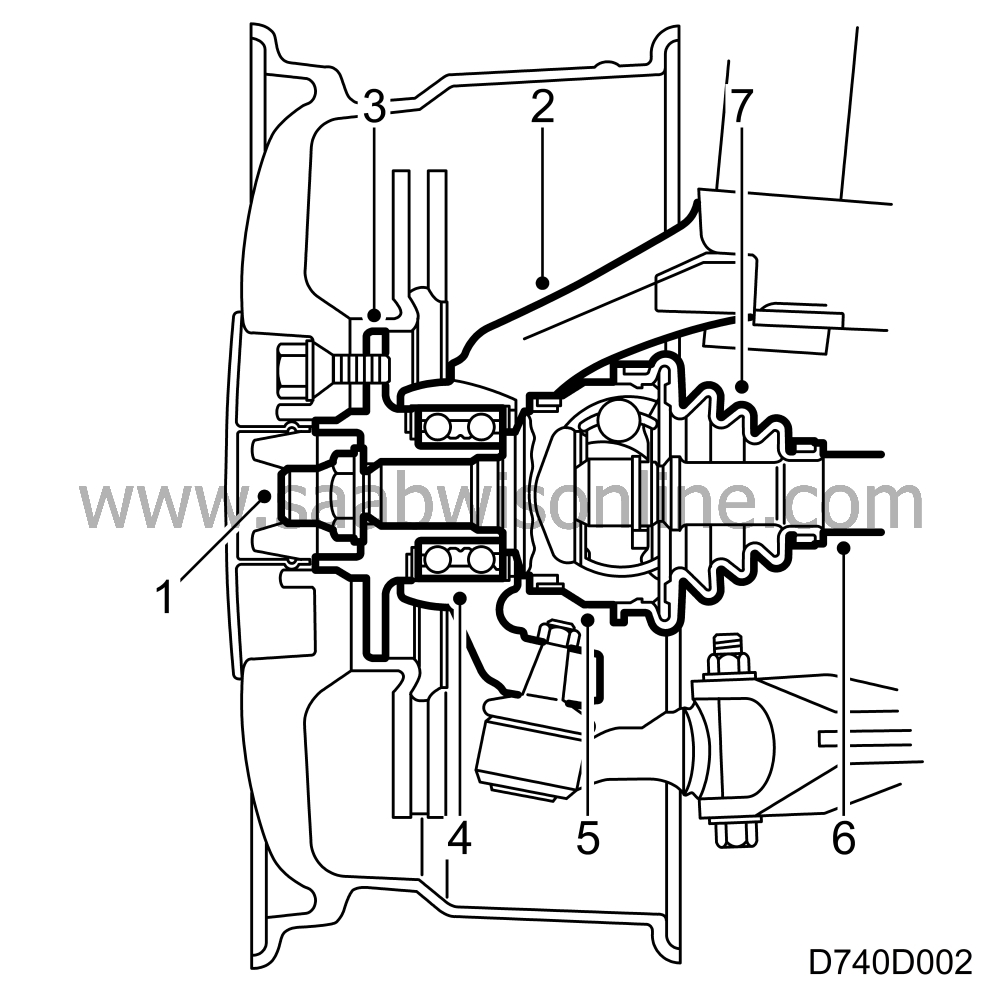Drive shafts and drive-shaft joints
|
|
Drive shafts and drive-shaft joints
|
|
1.
|
V6, Turbo, automatic transmission
|
An extremely torsionally rigid intermediate drive shaft extends from
the right-hand side of the differential through an additional bearing
support bracket mounted on the engine. This ensures that the geometry
of the two outboard drive shafts is identical relative to the wheels.
The advantage of this design is that the directional stability of the car remains
unaffected even during extremely hard acceleration.
On models equipped with a V6 engine, turbo unit and/ or automatic transmission,
the left-hand drive shaft is connected to the differential by means of a universal joint
comprising a tripod fork (spider) of needle bearings which slides inside a cup-type
driver.
The right-hand drive shaft is connected to the intermediate shaft in the same way. The
universal joints ("tripods") are permanently lubricated with
Mobile GS57C grease and enclosed in a rubber gaiter to keep out dirt and moisture.
Models equipped with a manual gearbox and two-
litre fuel- injection engine are fitted with inboard drive-shaft joints
of Rzeppa type in which the torque is transmitted through six balls
running in axial grooves. In this version of the Rzeppa universal joint
the drive shaft can slide axially.
|
Outboard drive-shaft joint
|

Constant-velocity joint
|
2.
|
Steering swivel member
|
|
5.
|
Outboard drive-shaft joint
|
The constant-velocity joint transmits engine torque from the drive shaft
to the hub and wheel. The constant-velocity joint has a stub axle which
is connected to the hub by means of splines. The joint is of Rzeppa
type and shaped like a cup with spherical grooves in which six balls
transmit the drive from the drive shaft to the hub.
The drive shaft is connected to the constant-velocity joint by means
of splines and a circlip prevents axial movement of the shaft. The
constant-velocity joint is permanently lubricated with Molycote Rapid G
VN2461C grease and protected from dirt and moisture by a gaiter. The
joint is lubricated only in connection with replacement of the gaiter
or if it is dismantled for some other
reason.




